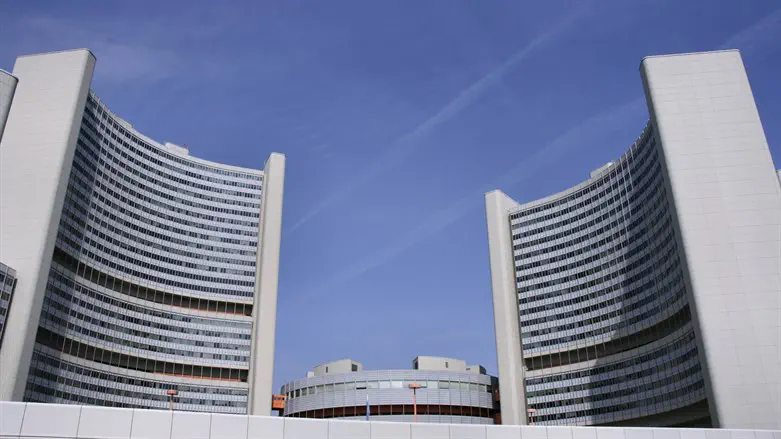
The UN's nuclear watchdog will this week carry out an "independent verification" of Russian allegations concerning the production of so-called “dirty bombs” at two sites in Ukraine, it said on Thursday, according to AFP.
A dirty bomb is a conventional bomb laced with radioactive, biological or chemical materials which are spread in an explosion.
International Atomic Energy Agency (IAEA) head Rafael Grossi said, according to the report, "IAEA inspectors will conduct independent verification at these locations".
He said they would work "to detect any diversion of nuclear material under safeguards, any undeclared production or processing of nuclear material at the two locations and assure that there are no undeclared nuclear material and activities".
The agency said it had inspected "one of the two locations a month ago and no undeclared nuclear activities or materials were found there."
On Sunday, Russian Defense Minister Sergei Shoigu alleged that Ukraine was preparing a “provocation” involving a radioactive device, sparking fears that Russia could use such a device and blame Kyiv.
A day later, Russia's defense ministry said army chief Valery Gerasimov made the same allegation in a conversation with US General Mark Milley.
Responding to Russia’s claims in a post on Twitter, Ukrainian Foreign Minister Dmytro Kuleba wrote on Sunday, “I spoke to US Secretary of State Antony Blinken. We both agreed Russia’s ‘dirty bomb’ disinformation campaign might be aimed at creating a pretext for a false flag operation. We also discussed further practical steps to boost Ukraine’s air defense. Secretary affirmed the US spares no effort to this end.”
Shoigu’s accusations came amid global concerns that Russia may use a nuclear weapon against Ukraine.
Russian President Vladimir Putin issued a thinly veiled nuclear threat in a recent speech in which Putin also announced his country's first wartime military mobilization since World War Two.
US President Joe Biden, in his speech at the United Nations General Assembly, accused Putin of making "overt nuclear threats against Europe" in reckless disregard for nuclear nonproliferation responsibilities.
US National Security Adviser Jake Sullivan later said that Washington takes Putin's nuclear threats seriously but does not presently see indications of the use of nuclear weapons by Russia.


